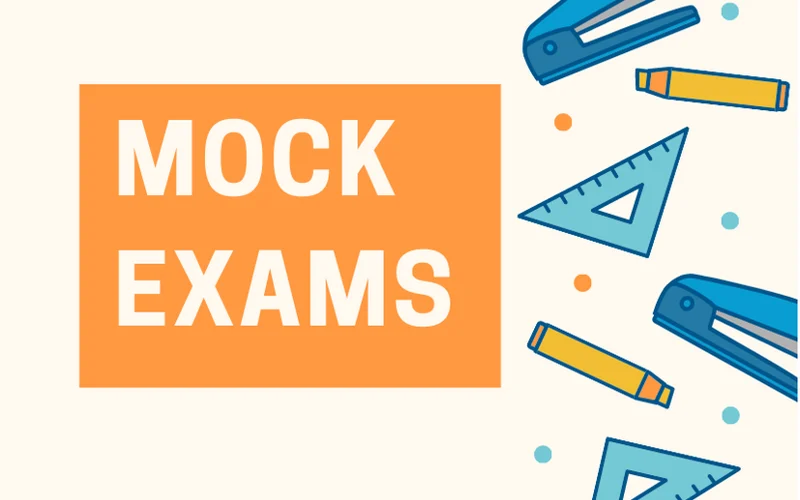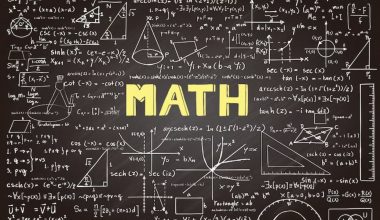Ever feel butterflies fluttering in your stomach when you think about big exams? It’s normal! GCSEs are a huge part of secondary school, and those test days can feel super important. Maybe you’re wondering what GCSE mocks are all about and if you should be worried.
GCSE mocks are like practice runs for the real exams. They’re a fantastic way to boost your confidence and iron out any wrinkles in your study plan.
In this article, we will discuss GCSE mocks better so you can feel prepared and ready to conquer those exams!
We will also answer some of your questions, such as “What are mocks like?” and “Do they affect my real grades?” Plus, we’ll throw in some top tips on making the most of your mock exams.
Table of contents
What Are GCSE Mocks Exam?
GCSE mock exams, also known as practice exams or trial exams, are simulated examinations designed to replicate the conditions and format of the actual General Certificate of Secondary Education (GCSE) exams.
These mock exams are typically conducted within school settings and serve as a preparatory tool for students before their official GCSE exams.
Why Are GCSE Mocks Important?
Practicing test papers at home differs from completing them in an examination hall under timed constraints. Mock exams offer students a realistic sense of the actual exam environment, particularly benefiting international students in UK boarding schools who might be unfamiliar with the exam format.
Mocks provide insights into anticipated question types, enhance time management skills, and alleviate pre-exam anxiety.
In addition to spotlighting students’ strengths, mock exams enable them to pinpoint areas necessitating improvement before the final exam. The actions students take post-mocks are equally crucial.
With several months remaining until the final exams, students should concentrate on reviewing weak areas identified during the mocks. Teachers can also identify struggling areas and allocate additional classroom time for targeted revision.
Read: Are Mocks Harder Than The Real GCEs Exam?
Critical Aspects Of GCSE Mock Exams Include:
- Realistic Testing: Mock exams mimic GCSE exams’ structure, timing, and content. This allows students to experience what it’s like to sit for the exams, helping them become more familiar with the process.
- Assessment of Knowledge: Mock exams evaluate students’ understanding of the subjects they’re studying. They provide insights into areas where students might need further revision and improvement.
- Exam Techniques: Taking mock exams helps students practice effective time management, question-answering strategies, and dealing with exam-related stress.
- Feedback: After completing the mock exams, students often receive teacher feedback. This feedback can include suggestions for improvement, areas of strength, and advice on approaching different questions.
- Motivation: Mock exams can motivate students by providing a tangible goal and helping them gauge their progress.
- Curriculum Coverage: Mock exams cover the same topics and subjects as the actual GCSE exams, ensuring students are adequately prepared for the content they’ll encounter.
- Reducing Exam Anxiety: Mock exams help ease anxiety by providing a controlled environment where students can practice and familiarize themselves with the exam conditions.
Are GCSE Mock Exam Results Used For Anything?
IMock exams primarily predict grades and lay a foundation for academic progress in subjects. They can also serve as a replacement for official grades in cases of emergencies, such as health or family-related issues.
However, they are not typically used for major decisions like college admissions. Their primary utility lies in offering a rough estimation of predicted grades, which can guide revision efforts and familiarize students with the exam environment.
The value of mock exams varies. While predicted grades can provide a general direction for revision, they can also induce stress due to the perceived significance of these exams.
Mock exams help assess students’ revision progress, but it’s important to remember that their results are essentially forecasts for GCSEs. Consequently, students should not overly stress about the outcomes of GCSE mock exams.
Also, read: The Night Before a GCSE Exam: A Survival Guide
Are Past Papers Used As GCSE Mock Exams?
Schools commonly recycle past exam papers to create new mock exams for students. Utilizing questions previously employed by official examination boards offers a valuable opportunity to become familiar with the exam format.
However, it’s important to note that while the examination board might have used specific questions in the past, this doesn’t guarantee the reuse of the same question types in future exams.
Certain educational institutions develop their practice papers, with educators composing these materials. Nevertheless, schools often incorporate select inquiries from past GCSE papers into their practice exams.
This is done to establish a resemblance to the particular examination board chosen by the school.
In any scenario, schools commonly distribute a list of topics to review for each mock exam. This enables students to search for relevant past questions related to those subjects and review them.
Following this approach, students can comprehensively understand the subject matter and the specific exam board’s style.
When Are GCSE Mock Exams?
Usually, two rounds of GCSE mock examinations are conducted before the actual GCSE exam week. The first occurs towards the end of Year 10, typically in May, June, or July, while the second occurs in December of Year 11.
Not all the modules of the GCSE curriculum were covered during the Year 10 mock exams. This explains why the predicted grades from Year 10 often lack precision, given that these exams don’t encompass the complete scope of content expected for the final GCSE exams.
However, they serve as a valuable opportunity for students to experiment with various revision techniques. These exams don’t have overwhelming significance, allowing students to approach them without excessive pressure.
On the other hand, the Year 11 GCSE mock exams are more crucial than the Year 10 mocks, as they demand the recall of a greater amount of information. Nonetheless, it’s crucial not to become overly stressed about these mock exams.
Instead, students should view them as chances to assess the effectiveness of their revision methods and identify their strengths and weaknesses.
When Should You Commence Your Study Preparation?
The period dedicated to revision should offer students ample opportunity to enter their exams with confidence and knowledge retention. The recommended timeframe for commencing revision before the exam is approximately 2 to 3 months.
Also, read: When Should You Start Revising For Your GCSEs?
When Are The GCSE Exams Scheduled?
Knowing the actual GCSE exam dates is crucial to determine when to initiate a revision. Typically, GCSE exams commence in May.
How Do You Initiate The Revision Process?
A productive approach to revision involves outlining the subjects you’re studying and categorizing them by priority. The subjects with the highest priority have the most weaknesses, while those with the lowest priority are the ones you’re most proficient in.
Engaging in passive revision—like reading and highlighting notes—can only take you so far. Active revision methods, such as practicing questions and quizzes, prompt your brain to recall and convey knowledge.
This type of interactive learning is particularly effective on the move. A valuable resource for this purpose is Seneca Learning, which can be accessed here. It offers quizzes and courses, with informative content in each quiz, and is utilized by over 6.5 million students.
Identifying the most effective revision methods for your learning style is crucial. Some students excel at memorization through reading, while others may find mind maps or videos more helpful.
Grasping information through various methods is the initial and most challenging aspect of revision, but locating question papers and quizzes is relatively more straightforward.
Maintaining motivation is also pivotal for effective revision. Efficient revision is challenging if your mind isn’t engaged in the process.
Lastly, striking a healthy balance and allowing your mind to rest is vital. Taking periodic breaks is highly recommended to facilitate optimal information processing. Best of luck with your exams!
Read Also: 15 A-Level & GCSEs Revision Techniques (That Actually Work)
Mock Exam Revision: 7 Steps To Success
Mock exams are an excellent opportunity to practice your skills and get a feel for the real thing. By following these steps, you can make the most of your mock exams and improve your chances of success on the real thing.x
- Step 1: Record your mock exam dates on your calendar; written reminders work better for memory. Use a physical or digital calendar; don’t miss the exam dates. This fundamental tip will help you stay focused amid stress and avoid forgetting vital exams.
- Step 2: Familiarize yourself with the topics requiring revision. Compile a comprehensive list of all potential exam subjects. You can find this information in your syllabus or by discussing it with your teacher.
- Step 3: Build a study plan. Use your topic list to craft a doable schedule, allocating realistic time for each subject. Avoid cramming too much material in one go. For extra assistance, check out this article or use the StudySmarter app.
- Step 4: Incorporate breaks. A well-structured study plan should incorporate designated breaks. These intervals are crucial for success, as a well-rested body and mind absorb information more effectively. Breaks also safeguard against burnout.
- Step 5: Prioritize sleep and a balanced diet. It’s not just about studying; sleep, diet, and consistency matter too. Ensure sufficient rest, maintain a diverse diet with vegetables, fruits, carbs, and proteins, and stay consistent. Learn daily, avoiding weekend cramming.
- Step 6: Guard your weekends. Maintain a social life and set aside time for breaks to protect your well-being. Avoid overwhelming study sessions.
- Step 7: Achieve equilibrium. Striking a balance between school, learning, hobbies, family, and friends is imperative. This equilibrium will preserve your sanity, bolster your mental well-being, and enhance your productivity.
FAQs On What Are GCSE Mocks
GCSE mock exams are practice assessments designed to mimic the format and conditions of the actual General Certificate of Secondary Education (GCSE) exams.
GCSE mock exams provide several benefits, such as identifying strengths and weaknesses, refining study strategies, and reducing anxiety by simulating the exam environment. They aid in enhancing performance and boosting confidence for actual exams.
Schools often conduct two GCSE mock exams before the official exam period. The first usually occurs in Year 10, while the second is held in Year 11, providing students ample practice opportunities.
Conclusion
GCSE mock examinations represent a critical juncture on the path to achievement. These assessments function as trial runs and open windows into our strengths and weaknesses, shedding light on the road to progress.
As we navigate education, let us wholeheartedly embrace these simulations as chances to sharpen our strategies, enhance our comprehension, and bolster our determination. With the right mindset, unwavering dedication, and a blend of dynamic and adaptable revision, we unlock the gateway to our genuine potential.
As the curtain lifts on the stage of learning, it’s essential to recognize that these mock exams extend beyond assessing knowledge; they gauge our character, resilience, and steadfast pursuit of excellence.
Let our aspirations and ambitions compose a victory narrative as pen meets paper. Within GCSE mock exams, we aren’t merely preparing for evaluations but crafting the architects of our forthcoming triumphs.
References
- academicfamilies.com – what are mock exams, and how important are they?
- thinkstudent.co.uk – what are mock exams and how important are they?
- www.studysmarter.co.uk – mock exams






